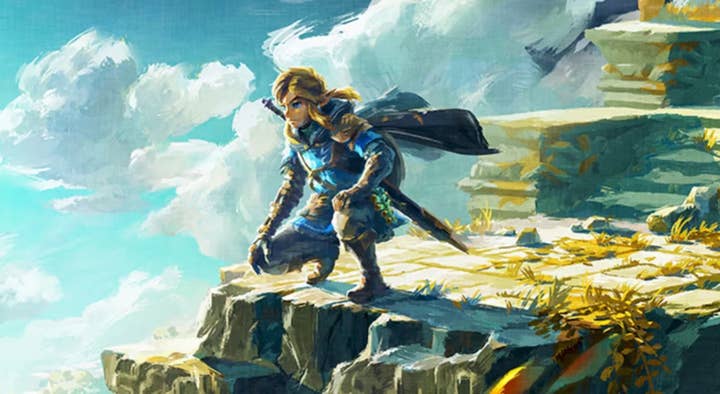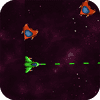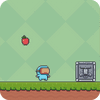Nintendo Switch and The Legend of Zelda controlled May|UK Monthly Charts
The PS5’s reign as the most sold video game console in the UK has come to an end, thanks to this change.

In May, the UK video game market was propelled by the release of a massive Nintendo Switch game.
Without Nintendo sharing digital information with the GSD charts (Nintendo is the only major firm that currently keeps these numbers), The Legend of Zelda: Tears of the Kingdom was without a doubt the top video game in May (GSD information).
Lifetime sales have already surpassed most prior Zelda games, making it the most successful launch in UK history. It’s a distant third to Twilight Princess (2006) and Breath of the Wild (2017).
Zelda’s popularity stoked the software industry in May, driving video game sales up nearly 30 percent from the same period in 2015 to more than 2.17 million units sold. In May of 2022, no major video games were released.
Hogwarts Legacy, which had a major release in February on PC, PS5, and Xbox Series S and X, appeared on older generation platforms in May. In May, sales were split evenly between the PlayStation 4 (53%) and the Xbox One (24%), with the balance going to previous-gen consoles.
LEGO 2K Drive, the other recent release, debuted at number 19 on the charts.
The Legend of Zelda also had a significant impact on video game console design. GfK panel data suggests that last month just under 96,000 consoles were sold. That’s a decrease of 10% compared to the same month in 2015 and a decline of 14% from April.
The Nintendo Switch has replaced the PlayStation 5 as the best-selling video game console in the United Kingdom, ending the PS5’s four-month reign. The month of May saw a 28% increase in sales compared to the same month in 2016.
With Zelda’s release coming up in May, why are Switch sales lower than in April? As it turns out, April saw the arrival of the Tears of the Kingdom Special Edition OLED Switch. The special Mario version of the Switch, which was released in March to coincide with the Super Mario Bros. movie, continued to sell well in April.
Almost one-third of all Zelda OLED Switch systems sold that month.
The 23% monthly decline in PS5 sales compared to the previous month is the first time this year that PS5 sales have been lower than they were in the corresponding period in 2022. May saw a 10% decrease in Xbox Series S and X sales compared to April and a 5% decrease compared to the same month in 2022.
Sales of the PS5 are up 81%, those of the Switch are down 8%, and those of the Xbox Series S and X are down 19% so far in 2023 compared to the previous year.
According to data from the GfK panel, there were 441,268 accessories on sale in the UK in May, a decrease of 9% from April and 5% from the same month a year ago.
While the PS5 DualSense controller is still widely used, the release of the latest Zelda game for the Switch has helped propel the popularity of the Switch’s Pro Controller to second place.
The Zelda-themed Nintendo Switch Pro Controller, released in tandem with the game, is the highest-charting new gadget (it peaked at position No. 20). This sort of controller was surprisingly hard to come by.
Zelda also has a crossover Switch Carry Case that reaches No. 32 on the charts. This item, too, has been snapped up by eager customers.
UK GSD May 2023 Top 10 (Digital + Physical)
| Position | Title |
| 1 | The Legend of Zelda: Tears of the Kingdom (Nintendo)* |
| 2 | Hogwarts Legacy (Warner Bros) |
| 3 | Star Wars Jedi: Survivor (EA) |
| 4 | FIFA 23 (EA) |
| 5 | Grand Theft Auto 5 (Rockstar) |
| 6 | Dead Island 2 (Deep Silver) |
| 7 | NBA 2K23 (2K Games) |
| 8 | Far Cry 6 (Ubisoft) |
| 9 | Red Dead Redemption 2 (Rockstar) |
| 10 | Tom Clacy’s The Division 2 (Ubisoft) |
* Digital information not available
Video games available on Steam, Xbox Live, PlayStation Network, and the Nintendo eShop fall under the category of “Games, Software, and Documents” (GSD). Companies like Activision Blizzard, Bandai Namco, Capcom, Codemasters, Electronic Arts, Embracer Group (Gearbox, Koch Media, Sabre Interactive), Focus Entertainment, Kepler, Konami, Marvellous Games, Microids, Microsoft (including Bethesda), Milestone, Nacon, Paradox Interactive, Quantic Dream, Sega, Sony, Square Enix, Take-Two, Ubisoft, and Warner Bros. Notable omissions include Nintendo and 505 Games, as well as smaller sized firms.

























